Ben was still writing this piece when he died. He reminisces about his past and about ‘The Walla Circus and Carnival.’ If you would like to share a comment or story about Ben or Walla, please click here
“It is not possible to understand a meal without bread“, wrote a French savant whose name I forget. Any restaurant review that fails to evaluate the quality of the bread is either incomplete or completely invalid, I cannot decide which. Fantastic bread can overcome an ugly restaurant with brutish service, recently defrosted desserts, and burned coffee.” – Jeffrey Steingarten, food critic for Vogue.
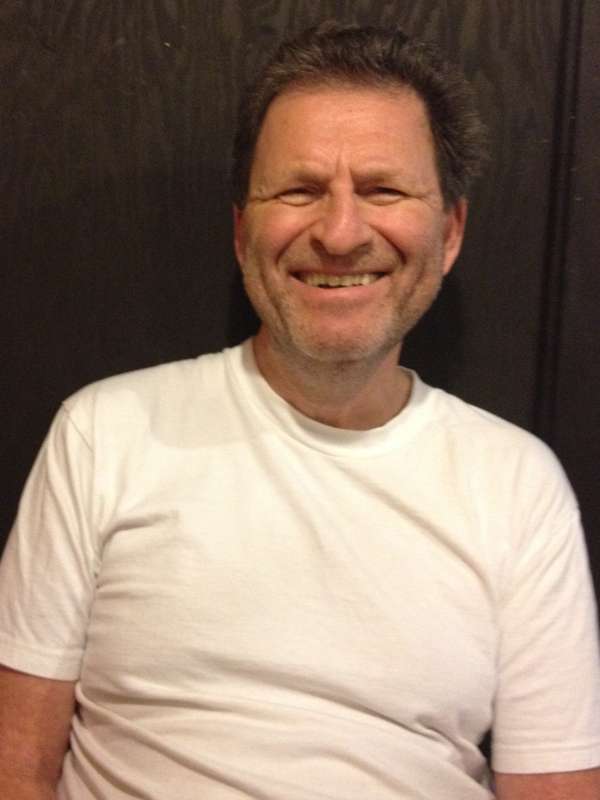 Embarking on a journey
Embarking on a journey Twelve years ago I embarked on a journey. l was guided only by an idea that served as a beacon of light, which often kept me from losing the difficult path I was negotiating or from falling off a cliff when the ‘terrain’ turned treacherous. An uphill battle it was indeed and if not for the Spartan way in which I was brought up and conditioned, I would have eventually ended up scarred and battered.
Instead, I embraced every obstacle and mountain as a challenge to overcome, and every failure as a lesson to be learned. This was one of the few times in my life when rogue and unchecked instincts directed me towards something that defied logic (baking bread) and seemed like sheer madness to others. I ignored everything, every voice of reason, and just went for it!
”The smell of good bread baking, like the sound of lightly flowing water, is indescribable in its evocation of innocence and delight… [Breadmaking is] one of those almost hypnotic businesses, like a dance from some ancient ceremony. It leaves you filled with one of the world’s sweetest smells…there is no chiropractic treatment, no Yoga exercise, no hour of meditation in a music-throbbing chapel, that will leave you emptier of bad thoughts than this homely ceremony of making bread.” – M.F.K. Fisher, The Art of Eating
For reasons still unclear to me, the chosen roads in my life were always unknown, winding and full of surprises at each turn, and I often came to realize that making the right choice – not the easy or popular one – was the most difficult.
Through the years I have gained the wisdom to never repeat a mistake, for that would inevitably lead me to a self-imposed dungeon where guilt and anger would torture my wretched soul. I was hard on myself and sometimes imagined ‘Dante’s Inferno’ as a Boy Scouts trip compared to the self-flagellation and torment I dragged myself through.
But perhaps constantly pushing my own limits and striving to break new ground led me to experience a release of endorphins, which can be quite addictive. Could it be that I’m just a workaholic …hmm? Could the simple fact of enjoying work and expressing creativity be an escape from one’s pain and inner demons?
I would not know – after all, I am just a baker!
 The Abyss
The AbyssBut I confess that I often find myself enjoying the thrill of looking into the abyss and then taking the plunge. Not the abyss of despair or Nietzsche’s “if you stare into the abyss, the abyss stares back at you” philosophy. Facing the unknown, choosing the road, dealing with the consequences and accepting the responsibilities, gives one the satisfaction of a life lived well, for after all, life is about embracing the challenges we are faced with, choosing to keep moving forward, and living the experience.
It was years ago when I stared into a different abyss, a menacing force that left me with a lifelong lasting impression.
It was in the early hours of an August morning: the sun had just peaked over the Edom Mountains, warming up the gentle wind blowing south from the Negev desert. Eilat is a city where the arid desert climate and low humidity is moderated by proximity to a warm sea. Temperatures often exceed 40 °C in summer and 21 °C in winter, while water temperatures range between 20 and 26 °C. It is Israel’s southernmost city, a busy port and popular resort at the northern tip of the Red Sea, on the Gulf of Aqaba.
The city’s beaches, coral reefs, nightlife and desert landscapes make it a popular destination for domestic and international tourism, and it averages 360 sunny days a year.
As every year, our family of four was spending the 7-10 days traditional vacation in the southern city. Between keeping up with two energetic daughters during the day and enjoying the nightlife with my wife, I felt energy-depleted and needed some quiet time (oh, so much for a well- deserved vacation. . . ). While the ‘ladies’ were still sleeping, I grabbed the scuba gear, snuck out of the room and headed toward the beach, a short walking-distance from the resort. It felt like the streets were calling and luring me in. I made my way to the sea, and swam out into the darkness. Suddenly I realized that the edge I was on had dropped into a bottomless nothingness, and that I was surrounded by a menacing abyss of emptiness. It was frightening at first, but then sound stopped and movement stopped and I was overtaken by a deep sense of calm and quiet, like when a storm ends.
“All we have to decide is what to do with the time that is given to us.” – Gandalf the Grey in J.R.R. Tolkien’s, The Fellowship of the Ring.
 Time
TimeAs I witness the decaying process of my body and face mortality, I contemplate it. Not in a depressing or woebegone way; it is more like a beautiful sadness. Now is the time to be letting go of attachments and things that might hold me back. And although it hurts to let go, it seems like the harder I try to hold on to something or someone, the more it wants to get away.
Time alone has no meaning except for the events that take place within its frame. Quite often it is defined either as desultory or fleeting – all according to its relation to certain occurrences and actions. Time is relative and flexible. According to Einstein, “the dividing line between past, present, and future is an illusion”.
So reality is ultimately TIMELESS. This sounds quite bizarre from the view of classical physics but from the viewpoint of consciousness theory and spirituality, it fits in perfectly.
I grew up in a generation where our clock was always running. We looked into the future and eagerly wanted to become adults. Time was equivalent to a river that flowed from a distance and slowly made its way in your direction, and if you got a high vantage point, you could ‘see’ the future while everyone else was simply making predictions regarding the economy, weather, fashion, just about anything.
The Jewish philosophy takes a different approach: the river runs behind your back while the future is muddy and unknown. As it moves towards you, you experience the present moment. You see it in front of you and then suddenly it is gone and becomes the past. Therefore Jews are often arguing about the past!
“There are people in the world so hungry that God cannot appear to them except in the form of bread.” – Mahatma Ghandi
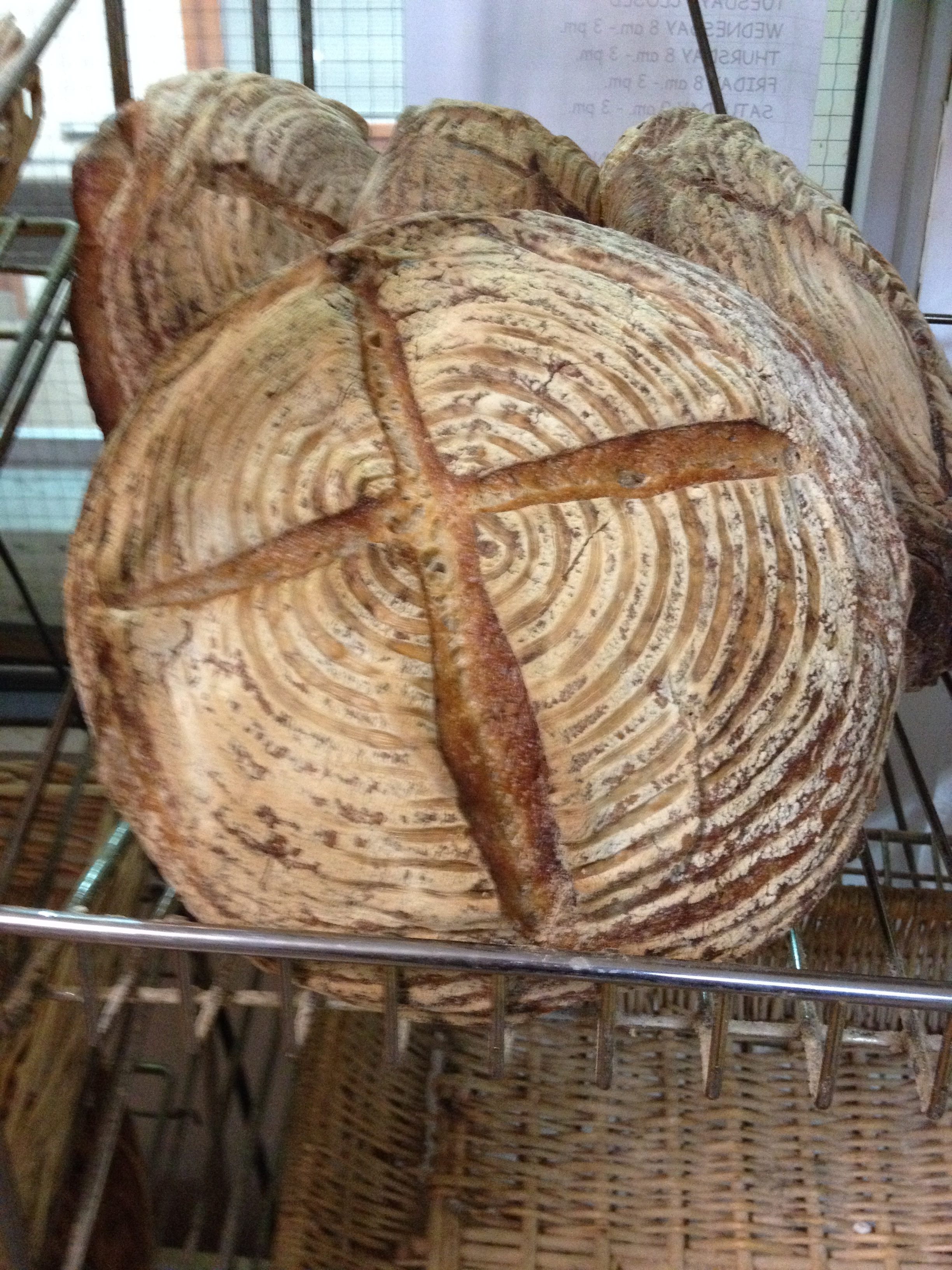 Tikkun Olam – תיקון עולם
Tikkun Olam – תיקון עולםIt was serendipity that brought me into the Tikkun Olam realm.
In Jewish teachings, Tikkun Olam refers to any activity that improves the world, bringing it closer to the harmonious state for which it was created. It implies that while the world is innately good, its Creator purposely left room for us to improve upon His work. All human activities are opportunities to fulfill this mission, and every human being can be involved in Tikkun Olam. The fact that the Creator values our world and our work to improve upon it is a motif that resounds throughout the prophets and rabbinical writings. “Not for desolation did He create it,” says the prophet Isaiah, “He formed it to be settled.” Living in an age when war and conquest was glorified, Isaiah describes an era of the future when all nations would “beat their swords into plowshares, and their spears into pruning hooks: nation shall not lift up sword against nation, neither shall they learn war anymore.”
An ancient Midrash teaches: “All that G-d created, He made to be improved.” And so the rabbis of the Talmud encouraged all the people, no matter how spiritually or intellectually inclined, to contribute to the common good. That meant building homes and families, and creating a civil society filled with deeds of caring and compassion, sustained by justice, integrity and peace. The term “Tikkun Olam” is used in the Mishnah as the motive behind social legislation meant to improve upon such a society.
And so I set upon a 12-year quest to create something that everyone loved but that not all could enjoy : a flavorful bread with a crusty loaf that could easily digested by all bread lovers, including celiacs, diabetics, etc. Bread that improved people’s lives one bite at a time.
The Book of Job
I have been there, done that, and the regret that ‘I should have…’ still lingers and haunts me to this day. The common wisdom is that ‘time heals all wounds,’ and yet after so many years, the wound and the pain remain while the universe supposedly, is going on as usual. At times I felt trapped, shrouded in darkness and depleted of hope, while sleepwalking through life in a fatalistic apathy, witnessing the benign indifference of the universe surrounding me. Dante’s “Lasciate ogni speranza, voi ch’entrate“ commonly translated as “Abandon all hope, ye who enter here” – became my dictum.
Often, there is no explanation for why things happen the way they do, unless one is comfortably snuggled in God’s bosom, such as my good ole’ buddy, Job or as better known in my neighborhood – Eiov. In the Hebrew Book of Job, God removed Job’s protection and allowed the angel to take his wealth, children, and health. Although he anguished over his plight, he stopped short of accusing God of injustice. Job’s miserable earthly condition was simply God’s will!
Jews have a specific relationship with God, which is not just a religious/spiritual identity, but also an all-encompassing view of the world. Therefore it came to a pass to establish a modus Vivendi with God: in return for working on the Sabbath day (without facing serious repercussions). I promised to be a mensch (‘a person of integrity and honor’), keen on carrying out good deeds. Just a mensch, a simple one; not to be confused with its cousin the Übermensch, a concept in the philosophy of Friedrich Nietzsche and a work of philosophical allegory. In his 1883 book Thus Spoke Zarathustra, Nietzsche’s character Zarathustra hypothesizes the Übermensch as a goal for humanity to set for itself.
So far, we have each kept our part of the deal, unless ALS can be considered the ‘Eleventh Plague.’ ‘Pain is inevitable and suffering is optional’ – everyone who chooses the spiritual path knows and lives by that! Well, perhaps everyone except the Jews, who secretly received an additional commandment at Mount Sinai: “Thou Shalt Suffer,” which apparently turned out to be the pièce de résistance, or ‘the mother of all commandments’ (Oy Vey!)
Speaking of The Commandments, it would be unjust not to mention the following anecdote:
The Hebrew people were sitting around Mt. Sinai. You could hear only a subdued murmur among them but you could feel the tension in the air. For hours now, Moses had been on top of the mountain, hidden from their gaze by clouds wafting around its top. Sometimes the clouds became dark and you could hear thunder rolling down. In spite of the warm weather, this always caused a shudder among the waiting mass. The end of day was approaching and dusk was beginning to set in when suddenly a figure came through the clouds and walked down the steep mountainside carrying a heavy load. It was Moses. Moses set down his load and raised his hands. “Friends,” he said, “it was hard work and I have done my best. I have negotiated with Him. I used every possible argument, every trick I could think of–and I think I was successful. The good news is: I brought him down from fifteen to ten. The bad news is: Adultery is still in.”
Since the time of Abraham in 1812 BCE to this day, my People were subjected to Slavery, Conquering, Ethnic cleansing, Exile, Blood libels, Deportation, Pogroms, Inquisition, Holocaust, Wars, Anti-Semitism and Persecution, while stubbornly withstanding repeated attempts at total annihilation. That is, four thousand years of relentless, undiluted suffering – it streams through our veins and is etched in our genes.
Q: Why do Jews not drink much alcohol?
A: It interferes with their suffering.
Since there is not a single addictive bone in my body (except perhaps for my love of work), no shield was in place in order to deflect what was coming [his divorce and the loss of his children]. I knew that suffering was a fact of life, so with clouded mind and broken heart I let everything in, like a flood of Biblical proportions.
“Are you ALIVE?” inquired the universe, which included family and friends who offered me their sympathy and presence. Yet, despite these “acts of compassion“, I was profoundly clueless. Heedless of what sense told me, unable even to listen to my own voice, I deprived myself of life’s grace, refinement and dignity, while drowning in a self-induced pity spectacle and self imposed purgatory. In retrospect, years of struggle and lack of action, while constantly doubting the sanity of my decision, seared a deep mark and disfigured my core. The past, it turns out, never truly passes, and the wound and pain remain…
The Walla Circus and Carnival
As this life journey draws to an end, I stop for a rest by the side of the winding road and allow the familiar faces to pass by: many customers who became friends, others who followed their passion for food and joined our team along the way, including Corey, Christina, sisters Bianka and Justine, Brenda, Natalie, Tarie, the Greig sisters Elena, Adra and Madie, Joey, Dave, Graham, Bruce, Kurtis, Ed and Sharon M. I sit on a bench and watch the endless procession of happy and sad people who eat while walking.
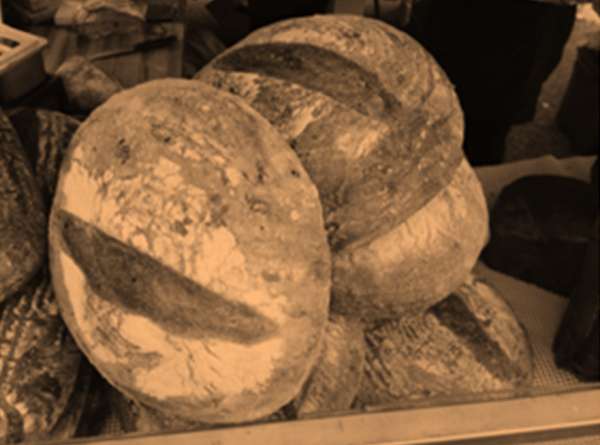 A group walks by while one fellow carries a solar toaster around his neck, pulling out golden, toasted Jewish Rye slices and serving his companions: ‘…and don’t forget the BUTTER!’ – he shouts to the Rye aficionados who are passionately debating with other comrades about which Bread is the best – the strongest allies of course are in the Pastrami-lovers camp. Cranberry-Walnut with the purple crumb! No, the Bianca with Asiago cheese, roasted garlic and sun dried tomatoes!; or the Pumpernickel; the Multigrain; the Beer Boule with spent-barley and caramelized onions; Burgundy crumb Wine Boule with Merlot flour; Puttanesca with extra virgin olive oil, Kalamata olives and capers: Focaccia; Brioche; each one carrying their favorite loaf, stuffing their cheeks and arguing with their mouths full of delicious bread. From a distance they all look like agitated chipmunks.
A group walks by while one fellow carries a solar toaster around his neck, pulling out golden, toasted Jewish Rye slices and serving his companions: ‘…and don’t forget the BUTTER!’ – he shouts to the Rye aficionados who are passionately debating with other comrades about which Bread is the best – the strongest allies of course are in the Pastrami-lovers camp. Cranberry-Walnut with the purple crumb! No, the Bianca with Asiago cheese, roasted garlic and sun dried tomatoes!; or the Pumpernickel; the Multigrain; the Beer Boule with spent-barley and caramelized onions; Burgundy crumb Wine Boule with Merlot flour; Puttanesca with extra virgin olive oil, Kalamata olives and capers: Focaccia; Brioche; each one carrying their favorite loaf, stuffing their cheeks and arguing with their mouths full of delicious bread. From a distance they all look like agitated chipmunks.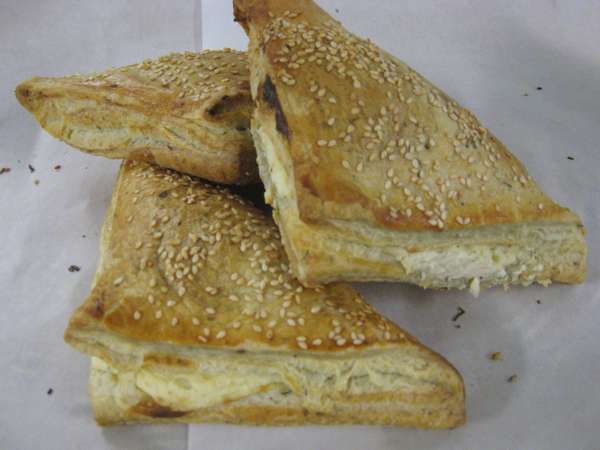 Close behind follows the Bourekas cart with a long line of toasted sesame lovers who continuously lick their fingers. Separate lines though – the vegetarians on one side, dipping the spinach and feta, potatoes and caramelized onions, cheese and dill, and curried mushrooms and eggplants into the fiery Z’houg, while the carnivore camp on the other side schmear spicy Dijon mustard over their Pastrami on Rye and Chicken Liver Bourekas. These are well-defined borders with no trespassing, or god forbid, cross contamination.
Close behind follows the Bourekas cart with a long line of toasted sesame lovers who continuously lick their fingers. Separate lines though – the vegetarians on one side, dipping the spinach and feta, potatoes and caramelized onions, cheese and dill, and curried mushrooms and eggplants into the fiery Z’houg, while the carnivore camp on the other side schmear spicy Dijon mustard over their Pastrami on Rye and Chicken Liver Bourekas. These are well-defined borders with no trespassing, or god forbid, cross contamination.Within the procession are people carrying pots and Dishes with Chreime, Shakshuka and Beef Bourguignon, while those beside them lick the bones from the Osso Buco. They all chew, nodding their heads and loudly agreeing upon the undisputable fact that they are the proud members of the most joyous and gluttonous society. The long column stretches way back to the horizon, a reminder of the Exodus scene where the Hebrews, led by Moses, left Egypt.
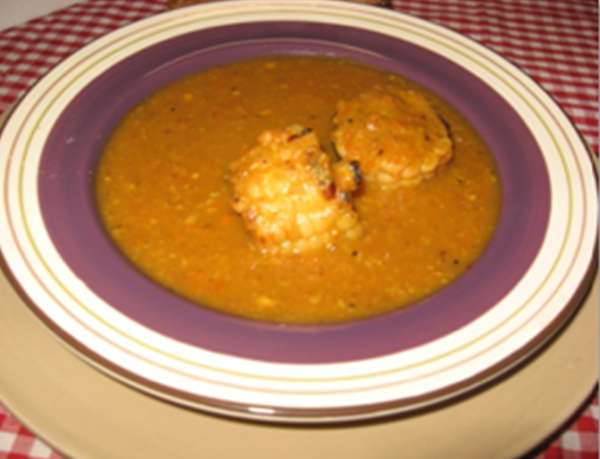 Next, a huge cauldron is pushed on wheels, accompanied by ear deafening slurping sounds – yep, they are the slurpers and lip-smackers camp, noisy as hell and from a distance they sound like a D-10 excavator operating in high-gear. (I admit joining this camp lately just for the reason that it is the only way for me to have coffee a.k.a caffeine slurpage). They are carrying bowls of fragrant, steaming Soup poured from the multi-spout system, each with his favorite: Beet, red cabbage and red potato borscht; roasted tomatoes and basil; squash and corn chowder: roasted potatoes and cauliflower; 5-bean and organic quinoa; Tuscan white bean; curried red lentils and brown rice; hearty minestrone; roasted potatoes and fennel; peasant soup with nettles and lovage.
Next, a huge cauldron is pushed on wheels, accompanied by ear deafening slurping sounds – yep, they are the slurpers and lip-smackers camp, noisy as hell and from a distance they sound like a D-10 excavator operating in high-gear. (I admit joining this camp lately just for the reason that it is the only way for me to have coffee a.k.a caffeine slurpage). They are carrying bowls of fragrant, steaming Soup poured from the multi-spout system, each with his favorite: Beet, red cabbage and red potato borscht; roasted tomatoes and basil; squash and corn chowder: roasted potatoes and cauliflower; 5-bean and organic quinoa; Tuscan white bean; curried red lentils and brown rice; hearty minestrone; roasted potatoes and fennel; peasant soup with nettles and lovage.In the background music plays: gypsy, flamenco and opera arias. Everyone is sauntering and slurping – this is the Walla Circus and Carnival at its best.
 In the midst of it all, I remember with sadness some of the fine people who were friends and customers who have left us: Lyle, Mark, Robert, Bob, Daryl, Olaf, Susan and Neil. Such is life – time will come when all of us will be gone and no one will ever remember that we existed; for after all, what is life without death?
In the midst of it all, I remember with sadness some of the fine people who were friends and customers who have left us: Lyle, Mark, Robert, Bob, Daryl, Olaf, Susan and Neil. Such is life – time will come when all of us will be gone and no one will ever remember that we existed; for after all, what is life without death?Memories sail back to the lectures I gave about ‘Bread and Life’ where I preached about ‘MODERATION’ and ‘BALANCE’ – the least used words in the vocabulary. We live in a strange world and a culture that rewards slimness and therefore has spawned many fad diets, which carry the air of a cult about them: Atkins, Paleo, Keto, the Wheat Belly, Zero Fat, Whole Grains, Veganism, etc. – pick your preferred ‘awakening’ theory or beacon of hope.
Unfortunately, we are ill-equipped to identify non-factual based information or to separate the wheat from the chaff, and so the fads keep coming. These misinformed diets lack balance by virtue of exclusion of some foods while favoring others, such as Grapefruit, Kale, Blueberries, etc., compared with eating an array of nutrition-rich foods in modest portions. They are on the extreme spectrum, targeting diet-desperate, health-obsessed practitioners by offering them the elusive illusion of a complete life change.
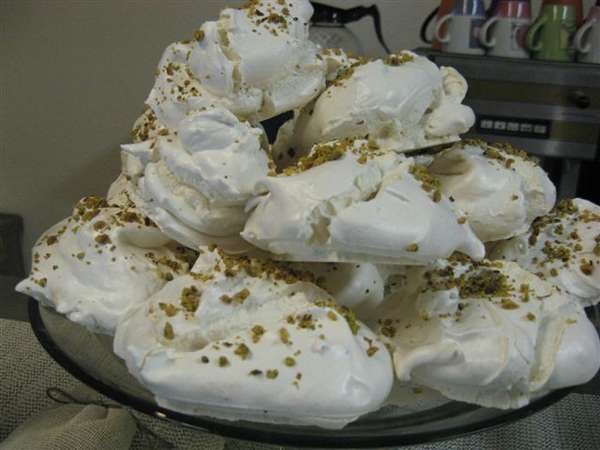 The lifestyle Gurus and Zealots are out in full force to proselytize to those who yearn for such safety from ill health. No lack of evidence will keep people away from diets that have less to do with results and more to do with herd psychology, profits and the media, which promote anxiety around weight and illness.
The lifestyle Gurus and Zealots are out in full force to proselytize to those who yearn for such safety from ill health. No lack of evidence will keep people away from diets that have less to do with results and more to do with herd psychology, profits and the media, which promote anxiety around weight and illness. In this culture, our inevitable demise invokes our primal fear of that which we cannot fully understand or overcome. Yet we should not be afraid of death, just of a life unlived and dreams unfulfilled. When life gives you a challenge, go ahead: dare to charge with gusto and abandon, and harness the courage to follow your instincts. Otherwise, forever you will be doomed to shed tears for lost opportunities and possibilities while longing for something that is no longer there except for vestiges of the past. It is not about the length of life, but the depth of it you are willing to explore while challenging your ‘safety and comfort zone,’ and remember that only those who live deeply do not fear death!
But, hey what do I know; after all, I’m just a baker!
